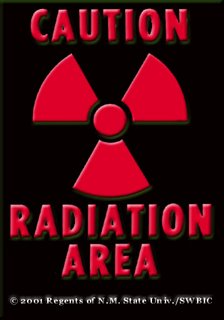
Right now, I’m past the “isn’t this funny” stage. Right now, there’s nothing comical or even mildly humorous about having a bowel movement. Right now, I think I could kill somebody who makes a joke about rectal pain.
I have made it through 20 radiation treatments with only 8 more to go. But I am wondering about upgrading this 1953 model derriere to something more bootylicious. The way I feel, even I’m not ready for this jelly.
And so, when my good friends in the radiation treatment room ask how things were going today, I told them the truth, “It hurts…a lot. I want to get a prescription, and, oh by the way, I want it today, not after the weekend, not after the Super Bowl, not after I apply more hydrocortisone to my cheeks. In the next few minutes would be ideal!”
Maybe this is what they had in mind in the session on Practical and Emotional Ways to Cope with Cancer when we were advised to become more assertive. I’m feeling very assertive. Sure, I’ll follow instructions to have more sitz baths this weekend, try to sleep on my side, watch TV standing up or leaning over on cushions on the couch…anything they suggest. But, in addition, I want drugs and I want them now.
So, it looks like I’ll get my wish. My Community Care Access Centre nurse this morning talked about a prescription applicator for hemorroid sufferers that radically improved the life of one of her other patients. But my radiation oncologist’s supportive care coordinator is recommending suppositories. Anosol-HC is a non-prescription hydrocortisone for treating chemicals that cause inflammation, redness, and swelling. In my case, it is specifically and medically speaking, to treat post irradiation (factitial) proctitis.
As many as 75% of us treated by radiation to the pelvis will suffer from factitial proctitis. Interestingly, the symptoms can present themselves from any part of the gastrointestinal tract. With the new supervoltage radiation technology used today, there are far fewer problems with the overlying skin. But radiation proctitis usually starts appearing after 5,000 rads of radiation exposure. I’m not sure if I have the quantities right, but I think I am at 3,600 to 3,900 rads of radiation exposure thus far. If so, I can only imagine what another 1,100 to 1,400 rads would do! But then again, I’m getting concomitant chemo therapy as well, something which can lead to increased chances of radiation proctitis.
I just have to hope that this isn’t a long-term phenomenon. I have to hope that radiation proctitis will gradually dissipate as I get closer to surgery.
OK. Just before calling an end to this blog entry, I want to rant for a minute.
Why isn’t radiation proctitis considered a major side-effect for pelvic radiation treatments? Why didn’t I receive consultation before treatment about this specific side-effect? Why didn’t anybody in the cancer centre even mention the phrase radiation proctitis? Why do medical staff seem to assume a one-size-fits-all approach to patients? Case in point – some of us profit by knowing the names and descriptions of medical terminology. Some of us will do further research about medicines and treatments prescribed. Some of us will want to know about what is actually happening to our bodies in greater detail and with more precision than what seems to be a patronizing dumbing-down approach in the way medical staff talk to us.
OK. That’s it. Enough of the rant. Enough of the right now frustration. Maybe tomorrow’s suppositories will restore some of my humour.

1 comment:
I agree. I had external radiation therapy for prostate cancer over 15 years ago, and my radiation proctitis continutes to get worse all the time. No one told me this was a possible side effect. It's not fun!
Post a Comment